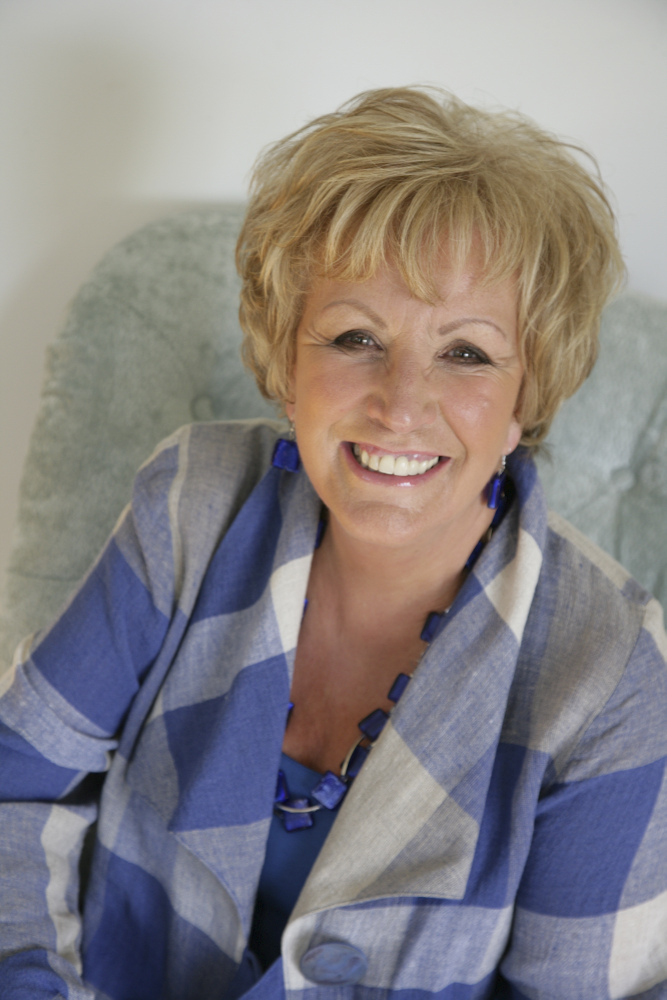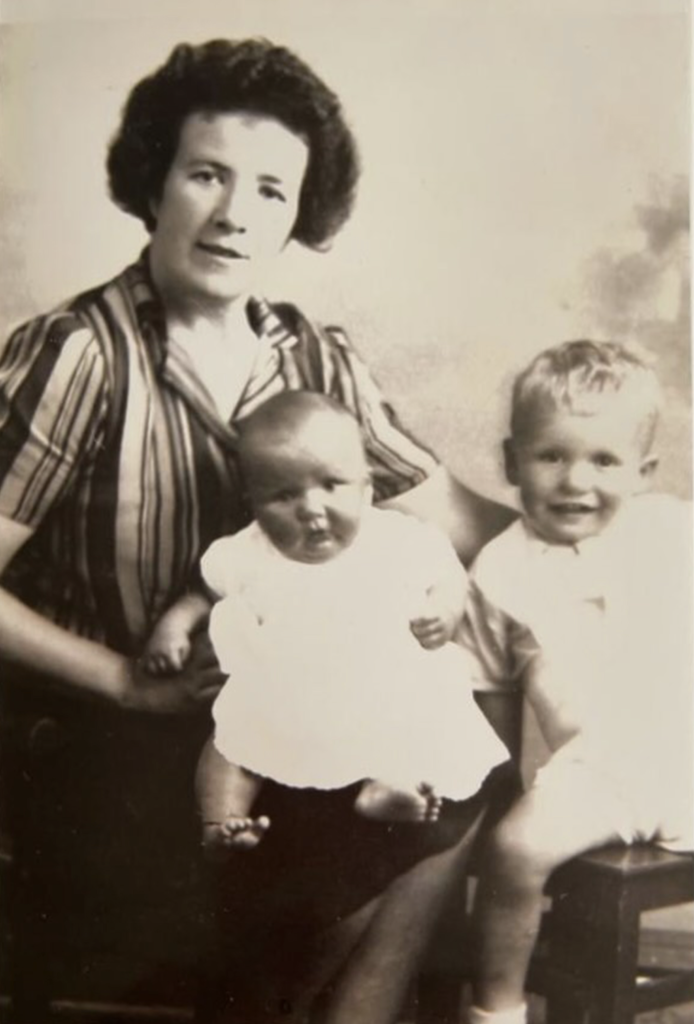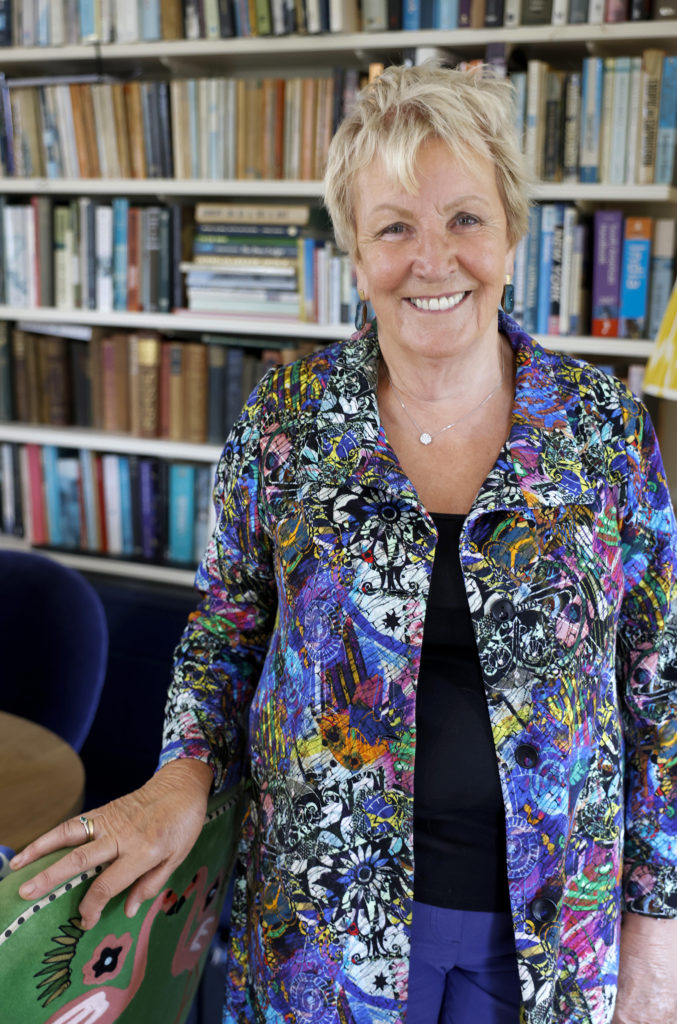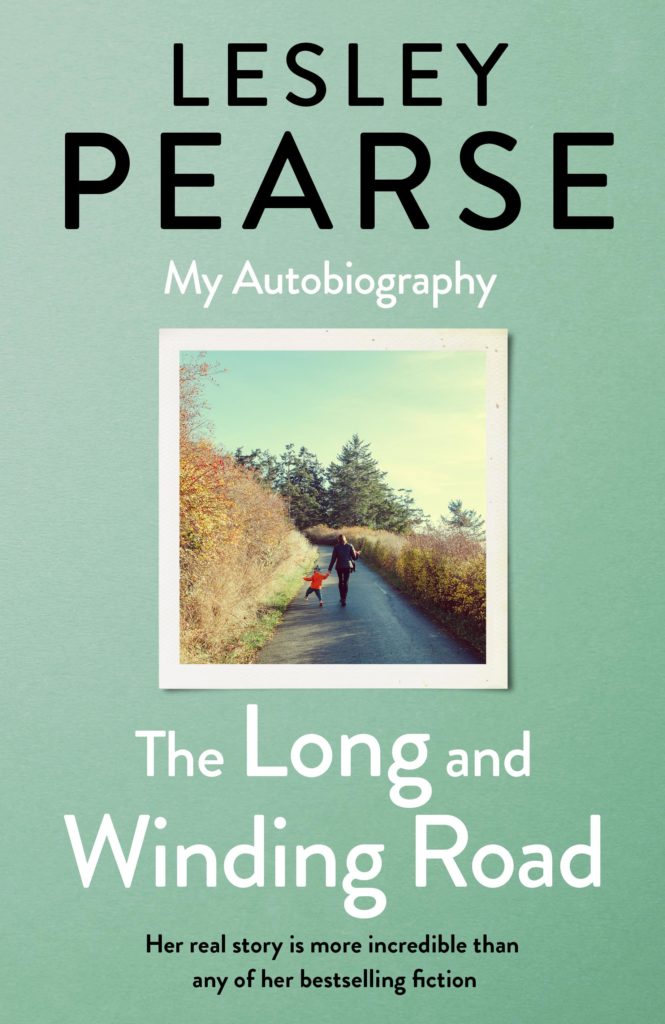AUTHOR Lesley Pearse has cultivated a successful career over many years.
The writer, who was born in Kent during the Second World War, has completed 31 novels to date which have sold more than 10 million copies.
With one of her books sold every four minutes in the UK, by now she is one of the nation’s best-loved fiction writers.
But her latest book has sent Pearse down an entirely different path.
On February 29, the 79-year-old, who lives in Torquay, Devon, released her autobiography The Long and Winding Road.
Unlike her previous 31 books, in this one the author reveals the heartbreaking truth of her own story.
 Author Lesley Pearse has just released her autobiography (Pic: Charlotte Murphy)
Author Lesley Pearse has just released her autobiography (Pic: Charlotte Murphy)Life was hard from the outset for Pearse, who, at the tender age of three, was found coatless in the snow by a neighbour.
Her mother Marie, an Irish woman with roots in Roscommon, had been dead for days in their home. Pearse had been trying to revive her.
She was then separated from her brother and sent to an orphanage.
A few years later, she went to live with her father, a Royal Marine, but life in the household was difficult and she left home to forge a future in London at the age of 15.
Those formative years in the capital saw Pearse fall pregnant with a son she would have to give up for adoption when he was six months old.
The sadness of that loss fuelled years of what Pearse describes as “hedonistic partying” before she came through the fog.
By the age of 49 Pearse had moved to Bristol, had daughters Sammy and Jo with her and had set up a gift shop.
 Lesley Pearse as a little girl
Lesley Pearse as a little girlIt was then that she started writing.
However, while she has never looked back on her writing career, she found herself constantly looking back on her life.
She mourned the son she gave up for adoption and the Irish family she was told didn’t want to know her after her mother’s death.
Thankfully, when Pearse decided to try and reconnect with both, she was pleasantly surprised.
Today, Pearse is a mother of four, grandmother of seven and a great-grandmother of one.
She also has a large family network in Roscommon, and plans for a new book, set in Ireland are underway.
This week, she told The Irish Post the true journey behind The Long and Winding Road…
Your autobiography has just been released, what inspired you to write it?
I wanted to leave something behind for my children. They’ve really only known me successful, and I thought they should know the bad and sad bits and what determination can do.
How challenging is it to write honestly about your life in such a public way?
Much greater than I expected.
It’s like all your greatest fears of being exposed, setting yourself up for ridicule.
And being ashamed too.
Sometimes I felt the ghost of my step mum saying ‘tell the truth and shame the devil’.
You have faced many challenges in your life, which have been the most life-changing?
Deciding I wanted to be a novelist.
I invested everything in it, time, dreams, belief, even my marriage, and had I failed the disappointment and regret at wasting so much time on it would have been unbearable.
Fortunately, I got there, and it brought financial security, a sense of my own self-worth, and I was able to give my children a good start in life.
 Lesley pictured as a baby with her older brother and her mother in 1946
Lesley pictured as a baby with her older brother and her mother in 1946You were reunited with your Irish family in 2022. Why was that important to you?
It was the important missing jigsaw piece put in place.
I had thought about them a great deal over the years. Sadly, the older aunties and uncles were gone by the time I did connect with the family.
But the cousins have had a great impact on me, now I can see and feel where certain characteristics come from. I feel part of a big tribe, not alone.
You lost contact with your Irish relatives at a very young age, were you aware of your roots as a child?
Yes, I knew my mother was Irish, but my father never talked about her.
My brother and I had also been told by neighbours that like her family didn’t even come to England for our mother’s funeral. That was a lie.
They even wanted to take both of us back to Ireland with them.
At 17 I went to Ireland to see them, but I was too young and bashful then to ask leading questions, and later, in 1964 when I became an unmarried mother, I felt that as they were Catholics they’d be horrified. So, ashamed, I decided they were lost to me.
What drove you to reconnect with your Irish heritage all these years later?
I am one of those people who always finishes things, and I couldn’t be finished inside until I’d embraced who and where I’d come from. Even if that meant rejection.
The Catholic Church had lost its grip over the years, the Celtic Tiger had leapt up, and I started to mention my Irish roots in radio and newspaper interviews, in the hopes that a cousin might get in touch. Which is what happened.
 Lesley pictured a young girl with her older brother
Lesley pictured a young girl with her older brotherHow important is your Irishness to you personally?
Very. It is as a writer something to be proud of as it is the land of literature, poetry and music, all of which I love.
I think I am very Irish. I love to talk to people, and it is often said I must’ve kissed the Blarney Stone.
Did you feel an immediate connection when you met your Irish relatives?
Yes, I did feel an immediate connection, with my young second cousin Aishling who met me in Dublin four years ago.
Covid and lockdown prevented me doing anything more than write letters, but at Easter 2022 I was at a huge family party in Roscommon. And I have kept in touch since.
My cousin came to stay with his wife and children last year, his sister, is coming here in May and I hope to see many more of them before long.
Do you have any upcoming trips to Ireland planned?
Yes, a research trip for the latest book to Cork at the end of March. Hopefully a trip to both Roscommon and Dublin before that.
 Lesley Pearse is planning a new novel, set in Ireland
Lesley Pearse is planning a new novel, set in IrelandYou’ve also been reconnected with your son recently. How did it feel to find him again after all those years?
It was the most incredible, magical experience in my life.
He still has the same baby face that was locked in my head, and he’s a son to feel great pride in.
I’ve met up with him three times here in England and spent two weeks last year at his home in Texas.
We message each other all the time.
And hopefully he’s moving to France later this year.
Yours is a story of great courage and drive to overcome adversity. Where did you find the strength to keep battling through the dark times?
I think it’s the Irish blood.
I have been on my own since I was sixteen, I had to deal with all my mistakes and no one to bail me out.
I also learned persistence for what you want works, and to believe better times were coming.
What would you like readers to take from your autobiography?
To find their own self-belief, the power of persistence, but to be able to laugh at themselves too and be a good friend because friends are the building bricks of your life.
If you could offer advice to anyone experiencing similar issues, what would it be?
Sunshine always follows rain, that nothing bad lasts forever.
You may fear you are going to crumble, but you won’t, and each bad experience is a warning not to go down that road again.
The Long and Winding Road by Lesley Pearse is published by Michael Joseph on February 29


